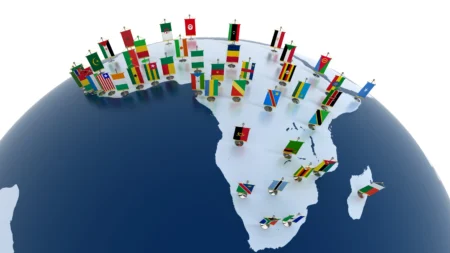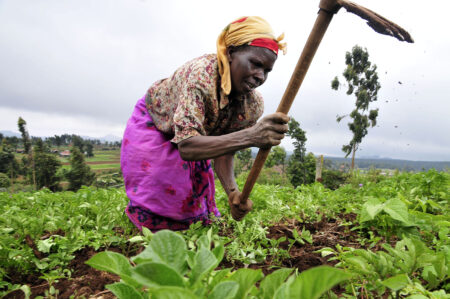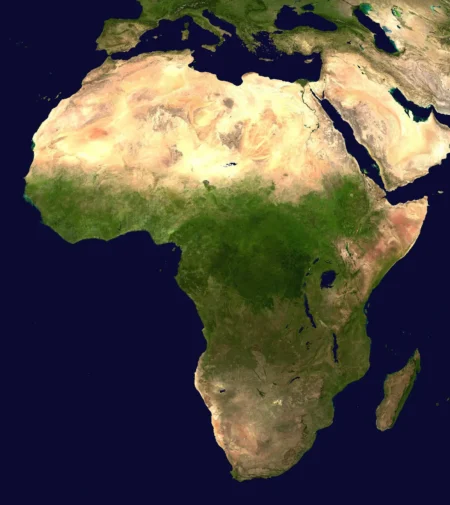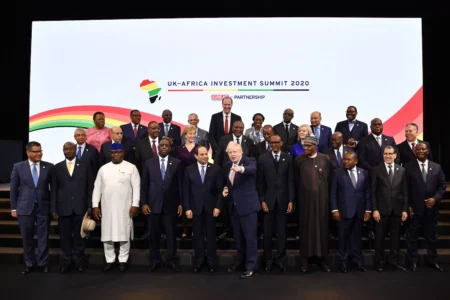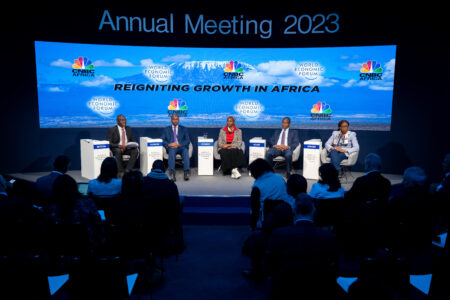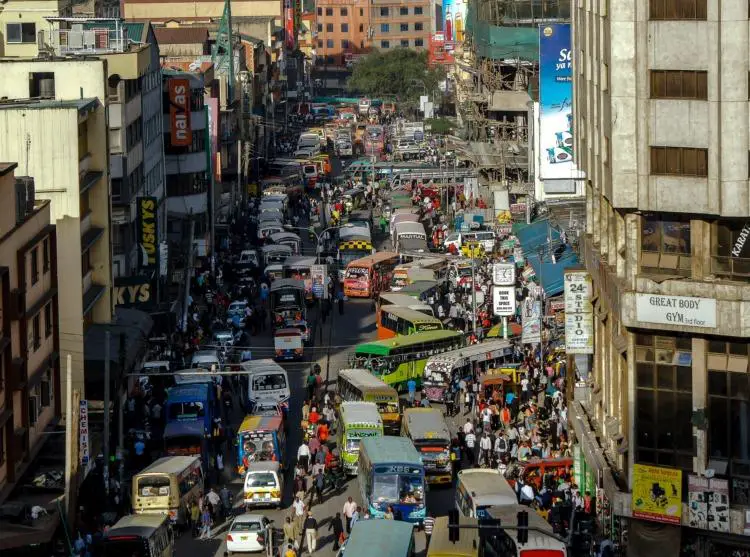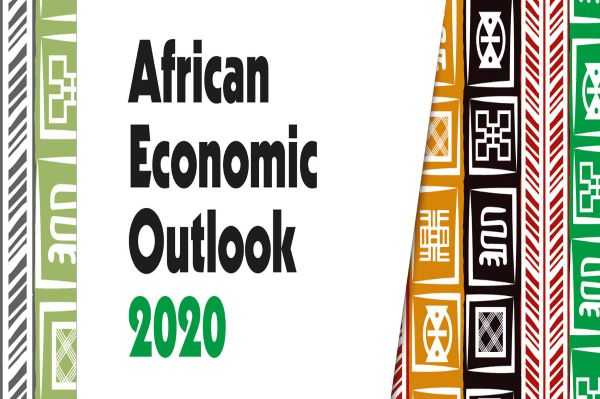- Africa’s new dawn: the rising role of digital and AI in agriculture
- Can Dangote Refinery Transform Africa Energy Ambition
- Gallup Survey: 80 per cent of Kenyan Workers Are Disengaged and Seek New Opportunities
- Madagascar Man Freed from 5KG Tumor After 15-Year Struggle
- How women in Africa are perceived and treated
- Sugar consumption in Kenya to Increase to 1.23 Million Tonnes
- Can Somalia and Turkey Oil deal Bring Change in Somaliland
- Remittances to Kenya dropped to $371.6 million in June, marking a six month low
Browsing: Africa’s economic growth
The implications of fragmentation and polarization on Africa’s economic growth and whether these trends will continue are unknown. What is certain is that multilateral organizations will need to continue encouraging international dialogue to promote economic integration and collaboration. As a result, one problem that emerges is whether African nations would adopt a unified stance or take a non-aligned approach in the Sino-American dispute.…
Governments can play a crucial role in enhancing agricultural productivity in Africa for economic growth. Individual nations can accomplish this by establishing policy environments to promote agricultural investment, including providing tax incentives and subsidies to producers. Governments can also prioritize agricultural development in their national budgets by allocating a more significant proportion of their resources to the sector.…
China’s reduced lending to Africa has raised concerns about the future of Africa’s economic development and its relationship with China. The reduction in lending is due to a combination of factors, including the slowdown in the Chinese economy, the growing debt burden of African countries, and China’s increased selectivity in its lending.
The reduced lending has several implications for Africa’s economic future. African countries must find alternative sources of financing, a shift towards domestic resource mobilization, a change in the balance of power between China-African relations, and a potential slowdown in infrastructure development. African countries must navigate these changes carefully to ensure sustainable economic growth in the coming years.…
Given these large costs and the effect on Africa’s economic growth, it remains imperative to prevent the prevalence of conflicts. Several economic and structural factors, including low-income levels, poor growth outcomes, weak governance, state capacity, and inequality of opportunity—especially across ethnic, religious, and regional groups—increase the likelihood of conflict. Addressing these challenges would address political instability in Africa and prevent conflict.…
- The AIS 2024 will build on the £6.5 billion deals and £8.9 billion investment commitments achieved at the previous summit held in 2020.
- Around two billion people under 25 will live in Africa by 2050.
- 22% of Africa’s working-age population is starting businesses representing the highest entrepreneurship rate in the world.
The UK Prime Minister announced that London will host the African Investment Summit on 23rd-24th April 2024. This initiative aims to benefit Africa and the UK economies by tapping into Africa’s innovative and entrepreneurial minds.
The AIS is a prominent event hosting 24 Heads of State from African countries with British and African Business leaders.
The UK-African Investment summit in 2024
Africa has made significant economic and technological growth strides in the last decade. Today, Africa is renowned as an adequate investment opportunity for those seeking to make billions. The continent hosts seven startups that have attained the stats …
The continent as always, has great promise. This was the unanimous conclusion from the just-ended World Economic Forum, which is traditionally held at the Swiss resort town of Davos every year. However, significant obstacles stand in the way of the continent reclaiming its mantle of economic growth.
- The World Economic Forum held in Davos every has just ended. This year’s conference ran under the theme of Collaboration in a fragmented world.
- Africa was on the agenda of the World Economic Forum as is frequently the case.
- Discussions on Africa at the conference mainly centred on how the continent can regain its growth trajectory.
The World Economic Forum (WEF) identified four principal factors causing economic headwinds in Africa and will stall its economic growth as a continent unless dealt with. The so called “stallers” of Africa’s economic growth are and will remain as conflict, COVID, climate, and cost of living.
WEF …
African countries have started recovering from the effects of the COVID-19 pandemic after most economies shrunk due to the crisis.
The continent is home to over a billion people who live in low, lower-middle, upper-middle, and high-income countries.
The economy in the Sub-Saharan Africa (SSA) region is projected to expand by 3.6 per cent in 2022, down from 4 per cent in 2021, according to World Bank.…
Kenya is commonly considered to be East Africa’s financial hub. Its economic growth has increased steadily in the last decade due to significant political, structural and economic reforms. The SME sector stands out as the key driver of Kenya Vision 2030 which seeks to transform the country into a newly industrialized middle income country by 2030. SMEs are crucial in encouraging industrialization and helping to eradicate poverty by creating employment and raising income levels.
Social and Economic Benefits
SMEs complement large firms as subsidiary units; because they are more flexible they can effectively meet the needs of the market. They have a facilitative role in entrepreneurial activities across the country in both urban and rural settings, thus contributing immensely towards the socio-economic development and transformation of the country. SMEs are can ensure the achievement of sustainable development goals (SDGs), promotion of inclusive economic growth and sustainable industrialisation and fostering as …
Countries in sub-Saharan Africa are unprepared to equitably use, adopt and adapt to the ongoing technological revolution.…
Africa’s economic growth remained stable in 2019 at 3.4% and is on course to pick up to 3.9% in 2020, and 4.1% in 2021 as revealed in the African Development Bank’s 2020 African Economic Outlook.
The bank said that the slower than expected growth is partly due to the moderate expansion Africa’s Big five such as Algeria, Morocco, Egypt, Nigeria and South Africa – whose joint growth rate compared with the average of 4.0% for the rest of the continent was at an average rate of 3.1%.
In 2019, investment expenditure for the first time in a decade accounted for over 50% of GDP growth compared to consumption.
The bank noted that the shift can aid in sustaining and potentially speeding the future growth in Africa, increase current and future productive base in Africa while improving the productivity of the workforce.





